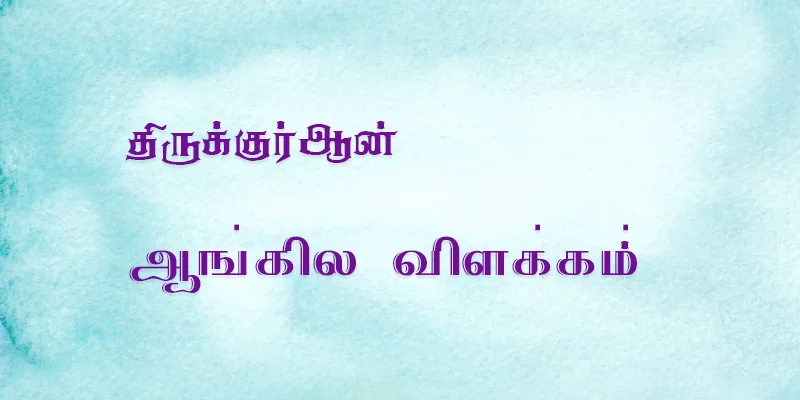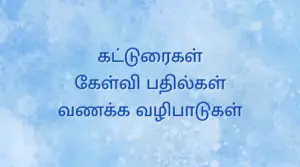291. Are unclean people allowed to handle the Quran?
Verse (56:79) of the Quran says “ It (The Quran) is handled, only by the purified/ immaculate”.
Citing this verse some argue that the Quran should not be even touched by unclean persons.
Based on this verse these people argue that, persons who are rendered unclean by not having their mandatory bath, persons unclean, and women in their menstrual cycle, and persons who have not embraced Islam, are prohibited even to touch the Quran.
If such a condition was laid down by the Quran, there is absolutely no one in the world who can veto. But these people twist the verse to portray as if what they interpret is correct.
Let’s look into how they interpret this verse and later proceed to analyse the authenticity.
We have made clear in our earlier explanation points 312, and 152, the Quran was not revealed in written format.
And because the Quran was not delivered in written form, there is absolutely no talk of ‘touching the Quran’ arises.
And the words “they cannot touch the Quran” will arise only if was revealed in a ‘touchable’ form.
The Quran was revealed to Prophet Muhammad in reciting, and not in a written format.
After receiving the message of Quran by way of sound, Prophet Muhammad ordered it to be written down by writers who knew to write. It was then the Quran took shape as written scripture.
If the Quran was presented from the Creator in the form of a book to Prophet Muhammad, the same could have been displayed to point out that it cannot be touched.
When something is delivered in sound format, and at the same time declaring it should not be touched sounds whimsical, because sound cannot be touched.
Then what does “ they (the unclean) cannot touch ” refer to? As per Isamic belief “The Creator” of this universe maintains a register of things that have happened, and yet to happen in this world, and this register known as the safeguarded book also contains the master copy of the Quran.
Please refer to explanation points 157, 492 for more details about this safeguarded book/record.)
It is from this safeguarded book/record is the Quran being brought out by the immaculate angels.
The phrase “ This cannot be touched” refers to the safeguarded book/register.
We do not declare this from our own guessing, the Quran declares it. This can be observed by noting the previous two verses of the Quran,
The two previous verses are as follows:-
Verses (56:77, 78.)of the Quran say, “ This magnificent Quran is from the Safeguarded Register”.
Verse (56:79). Says only the purified/immaculate can touch this.
Verse (56:80) says “ This is from the Lord of the Cosmos”
The verse says “ they cannot touch this”. Here the subject matter is what does the word ‘this’ refer to.
When we mention the word ‘ this’ while in conversation or while writing, means the object has already been referred to.
When the verses have previously mentioned the object referred to as “this” it could be found easily on searching it.
It could be found from the two verses previous to this verse (56:79) “ This Magnificent Quran is from the ‘Safeguarded Book’.
In the next verse we find the words “they will not be able to touch it”
Hence we need to understand the master copy of the Quran from “‘Safeguarded Book” from where it was revealed by the Archangel Jibreel is referred to as “This” in these verses.
Hence the words “ they will not touch” does not refer to the Quran that was revealed in sound form to men, but the master copy that is in the ‘safeguarded book’ in the custody of Almighty.
The argument that unclean men are prohibited from touching the Quran is wrong.
The Quran was addressed to all for guidance, to be read by everyone at all situations.
Non -Muslims only when they go through the Quran can get to know about the guidance offered by it. When they are discouraged by the false notion on sanctity of touching the Quran, the very objective of the revelation of the Quran is lost.
Prophet Muhammad invited many heads of state to Islam by writing to them verses from the Quran. (Bukhari 7, 2941, 4553.)
Prophet Muhammad sent over the written Quranic verses very well knowing the heads of state will touch the media while reading them. The notion that only clean people can touch the Quran would alienate common people from the Quran.
This verse does not in any way substantiate the view that only clean persons are allowed to touch the Quran.
The Quran could be read, touched, learned, at all situations, by all men is the decision taken on the basis of sayings of Prophet Muhammad and as well from the verses of the Quran.
There are un authenticated hadiths saying that people are prohibited from touching the Quran without performing Wudu (ablution).
Let’s get into the detail regarding this..
1- Hakim bin Hizam (RA) says:
At the time of sending me to Yemen, Prophet Muhammad (SAW) cautioned me from touching the Quran without Wudu.
Book: Haakim.
This hadith was narrated by Zuhaid bin Abi Hatim. Nasaaey, Abu Soor identify this person as weak. Ibn Maja has also declared him as a person with bad mentality. Ibn Hajar says there were many misgivings from him . Navavi has mentioned this hadith as weak in his book Alakulasa. Though this hadith is declared as authentic by Haakim, scholars say he is sometimes ignorant of taking decisions on authenticity of persons.
Abdullah bin Umar says:
“Prophet Muhammad said Quran should not be touched by unclean people.”
Book :Tabrani.
The name of Saeed bin Muhammad props up here, who was never certified as authentic by any of the scholars.
In addition the name of Ibn Juraij is found in this hadith quote. Though he is reportedly authentic he is considered as one who indulges in blackout/deliberate prevention and need to be taken note only when his messages contain the words like ‘I heard’, ‘I was informed’ etc, accompanies them.
In the above cited message, there is no declaration by him as having directly received it from Sulaiman bin Musa.
2- Usman bin Abil Aas says:
Prophet Muhammad said “ do not touch the Quran until you become clean”
Book:Tabrani.
We find the name of Ismail bin Raafiu in this chain of narrators.
Ibn Hajar, Yahya ibn Ma’in, Nasaaye, Tahbi, Ahmad bin Hanbal, Yakub bin Sufyaan, Ibn Adi, Taraqtani, Ibn Karaash, Abu Hatim, and Muhammad bin Sa’ad have declared this person as unauthentic. Only Bukhari declares him as authentic. Since many scholars other than Bukhari have unanimously declared him unauthentic and cast doubts about his memory power, hadiths narrated by him are considered with no substantiation.
Since Bukhari declared this person as authentic without being unaware of the shortcomings, this hadith is declared as a weak one.
3- Abdullah bin Abi Bakr bin Muhammad bin Amr bin Hazm says:
The message that persons other than who are clean should not touch the Quran, was found in the letter from Prophet Muhammad to Amr bin Hazm (RA).
Book :Marasalu Abi Dawood (90)
This message is found without a complete narrator chain.
Taraqtani, regarding this hadith, says belongs to the category of narrator missing (Mursal) classification.
Though the narrators are found authentic, a missing link in the chain of narrators renders the said hadith weak.
The hadith in mention was narrated by Abdullah Ibn Abi Bakr who is not a comrade of Prophet Muhammad (ie) he did not live in the period of Prophet Muhammad. Tarqtani has made it clear that, hadiths narrated by persons who are outside the period of Prophet Muhammad are declared to belong to the Mursal category. Abu Dawood has also classified this hadith as belonging to the Mursal category.
The name of Sulaiman bin Arkam, is found in the available chain of narrators, who is declared as a completely weak link in the chain by scholars.
Hence there is no substantiation in the message declaring that unclean persons are prohibited from touching the Quran, non-Muslims, women undergoing menstrual cycle, and those on whom a cleansing bath is mandatory, and people who have not performed wudu, are not barred from touching the Quran is the underlying message here.

